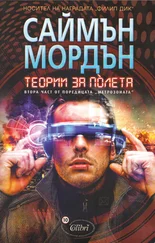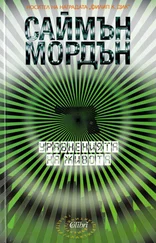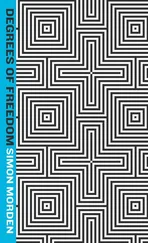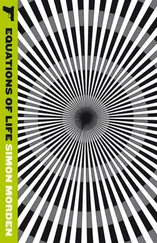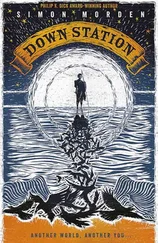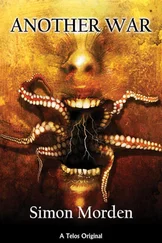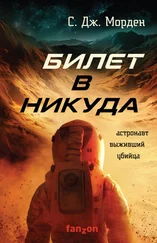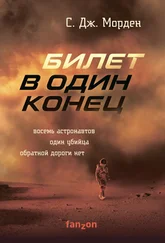Outside, he looked at the buildings around him and headed north. Toward Green Park.
The Oshicora Tower was constructed in the phallocentric style: tall, narrow at the base before flaring out to a maximum girth halfway up. Silvered triangles of glass wrapped like a staircase around its circumference, making it impossible to see any of the internal structure.
He’d soon have an opportunity. He was going in. He wasn’t sure it was the wisest course to take, but he gauged that the short-term benefits of staying alive outweighed any potential downside. He stood almost exactly where he’d been that morning, watching Sonja Oshicora striding toward him—then hesitating, as if she couldn’t quite remember what it was she planned to do next.
Then he turned and walked down the wide, fountain-flanked concourse to the entrance lobby. The guards—he’d have called them paycops, but for the little cloth Rising Sun badge sewn on the front of their impact armor—must have thought him a courier, because they stood back and ignored him.
Inside was bright and airy and clean. Real plants scrubbed the air, real people busied themselves cleaning the marble floor or carrying boxes labeled with katakana or answering phone calls at a tiered bank of terminals.
Petrovitch was the only non-Japanese face on the entire ground floor. He’d crossed the threshold from the multi-ethnic Metrozone to something he’d never encountered before; a monocultural enclave. He stood there, in the middle of the lobby, marveling at the strangeness of it all.
“Petrovitch-san?”
It took him a moment to realize there was someone behind him, and another to realize they were addressing him. He spun on his heel to see a squad of three black-clad guards, two standing respectfully behind their leader, who Petrovitch knew.
“Hijo. Hijo-san.” He knew to bow, and Hijo bowed lower, revealing the ceremonial sword strapped across his back.
“You are most welcome, Petrovitch-san. Please, come with me.” Hijo walked away, just expecting Petrovitch to follow, which after a deep breath, he did.
Everything he saw was beautiful, clean, new. It was how he’d imagined his future to be, not the squalor of the domiks, not the hot, heavy air that filled his lungs, not the day-to-day grind of just getting from one place to another. He had to keep reminding himself who he was going to see and how they got their money.
The lifts ran up the core of the building, accessed from behind the receptionists with their terminals and headsets. Discreetly placed guards marked a line between the public space and the private—no physical barrier, but there was a steel strip set into the floor. Petrovitch had no doubt that he would have been challenged and turned back if he’d crossed it alone.
But he had his escort: Hijo in front of him and two more armored men behind. Their presence didn’t make him feel any more safe than he did on the streets, and he knew they had orders to protect him.
One set of lift doors were being held open for him. Hijo marched straight in, turned, and waited.
Petrovitch hovered, and pushed at the bridge of his glasses. “Can I just say something here?”
“Of course, Petrovitch-san.”
“My turning up here is in no way to be taken as a sign of loyalty or joining sides or looking for favors. I’d very much like to keep everything informal, no contract implied or offered, that sort of thing. All I’d like is a quick word with your boss and ask his help in clearing up a little misunderstanding, then I’ll be out of here never to bother you again.”
Hijo smiled, and gave a little bow. “Oshicora-san is eager to meet you, too.”
Petrovitch screwed his eyes up and joined Hijo in the lift. “That’s not quite what I meant, but never mind.”
The two guards stayed outside, and bowed as the lift doors closed. Hijo spoke up—“ toppu yuka ”—and the car started smoothly. Lights indicating the floor number turned over, kanji characters all.
Petrovitch scratched his chin. The thought that had occurred to him while he listened to Chain crystallized in perfect form: this tower wasn’t just Japanese owned, Japanese staffed, but was actually Japan. It went beyond a yearning for what was lost; it was no pale recreation of a Tokyo office block, but the real deal, vibrant and alive with industry.
Chain saw Oshicora’s neo- yakuza as a new model of crime syndication, but he’d missed the truth of the matter. Petrovitch had misspent his youth playing strategy games: he recognized the plan for what it was. Each franchise was a colony, and they were growing.
The lift chimed, and the doors opened on another world.
The light was blinding and, for the first time in his life, Petrovitch realized he’d lived in the dark. He could hear water, birdsong, feel a cool breeze on his face. As his eyes adjusted, he began to see how all this was created at the top of a building in the middle of a city.
The glass skin of the tower soared up over his head. Fans at the apex stirred the air, sucking in the heat and pushing out a frigid wind. Trees, planted in real soil, waved their leaves over streams of moving water that sometimes narrowed to run babbling over cobbles, sometimes widened to become slow pools dotted with lilies.
Gravel paths, carefully raked and rolled, wound across the rooftop until they arrived at graceful arched bridges. Birds—real birds—gave flashes of movement and color.
Almost hidden amongst all of the garden was a single man dressed in loose gray trousers and a rough white shirt. He was standing at the edge of a square of white sand in which large black stones had been carefully placed.
Hijo guided Petrovitch onto the first path, and took a step back. Hijo would see nothing, hear nothing, until it was time for him to go. Petrovitch walked as if he was on holy ground, carefully, fearfully, until he was within coughing distance of Oshicora.
The man looked around. “Come,” he said. “Closer.”
Petrovitch joined him at the dark timber which separated gravel from fine sand. He could see the surface of the sand was patterned in circles and waves.
“I owe you a great debt of gratitude, Samuil Petrovitch. You rescued my daughter from her attackers, at a considerable personal cost. A relieved parent thanks you from the bottom of his heart.” Oshicora bowed low and formally, showing his thinning hair. Then he straightened up. “You’ve heard stories about me? From Detective Inspector Chain?”
“One or two,” admitted Petrovitch.
“He makes me out to be a monster. Most unfair.” Oshicora spread his hands wide. “Could a monster have conceived all this?”
“It’s… amazing. You must regret not spending more time up here.”
“You mean, I am so busy running my empire of crime that I can snatch only brief moments of rest?” He laughed, loudly and freely, his head tipped back. “Really, there is not that much to do. The secret is to choose your key managers carefully. You only have to take the critical decisions, or at least those which your managers deem to be critical. I have plenty of time to devote to matters of culture and learning. Much like yourself.”
“That’s very kind,” said Petrovitch.
“You are downplaying your achievements, Petrovitch-san. You obtained a first-class honors degree from a top-rank university. You have a scholarship supplied by wise benefactors in Russia. Soon you will be Doctor Petrovitch, and you will become eminent in your chosen field. Good. It becomes everyone, great or lowly, to achieve their potential.” Oshicora rested his hand on his chin. “But you are wary of me, uncertain whether to accept a compliment in case it is snatched away and replaced with malice. Try not to fear me. Here we are: a young man on the cusp of his life, an older man imagining what his legacy will be.”
Читать дальше
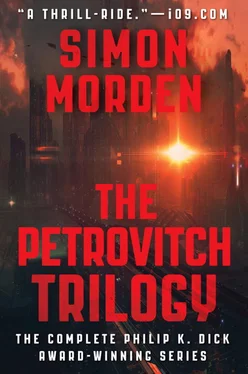
![Саймон Морден - Билет в никуда [litres]](/books/388091/sajmon-morden-bilet-v-nikuda-litres-thumb.webp)
![Саймон Морден - Билет в один конец [litres]](/books/395533/sajmon-morden-bilet-v-odin-konec-litres-thumb.webp)

